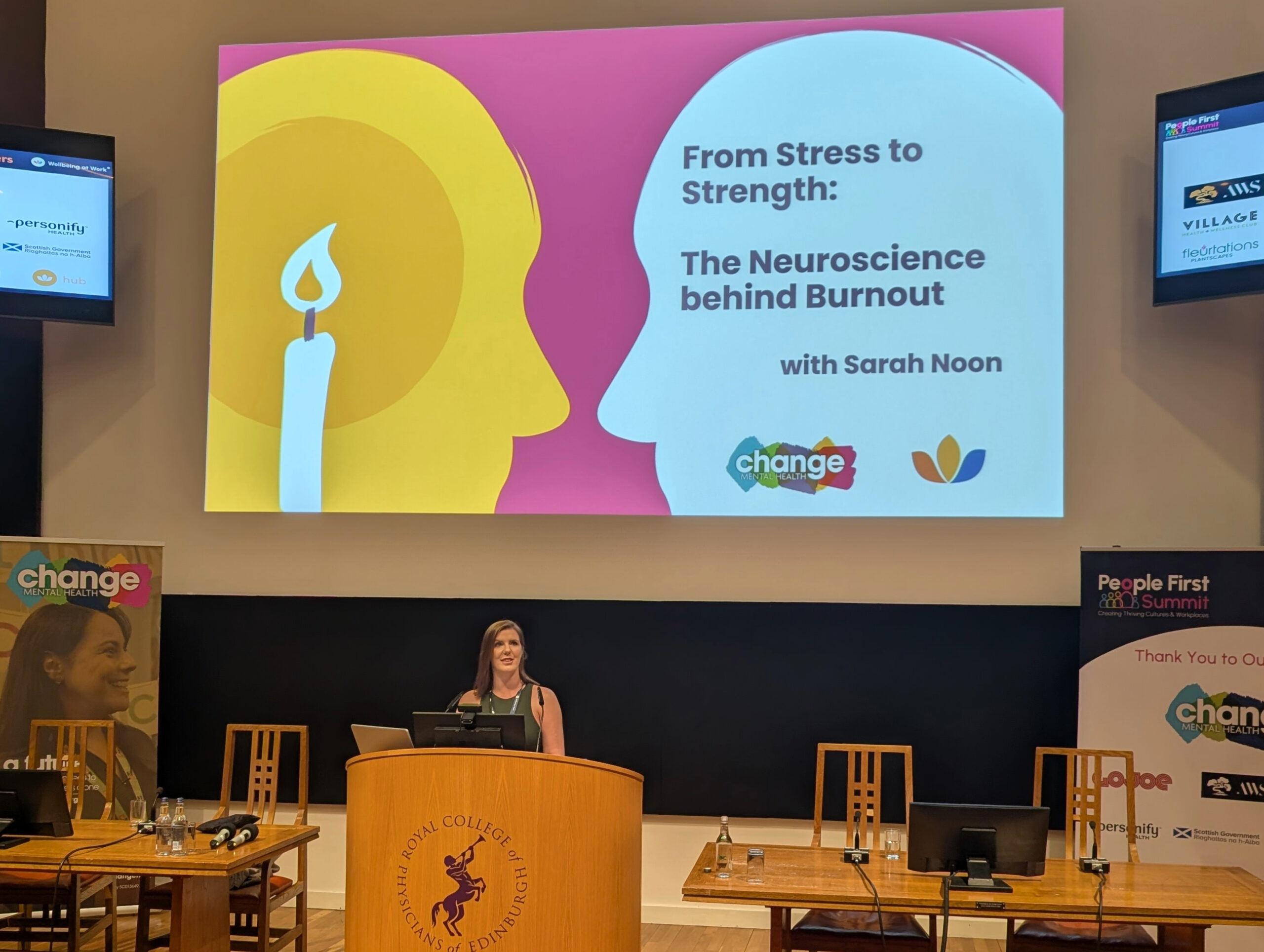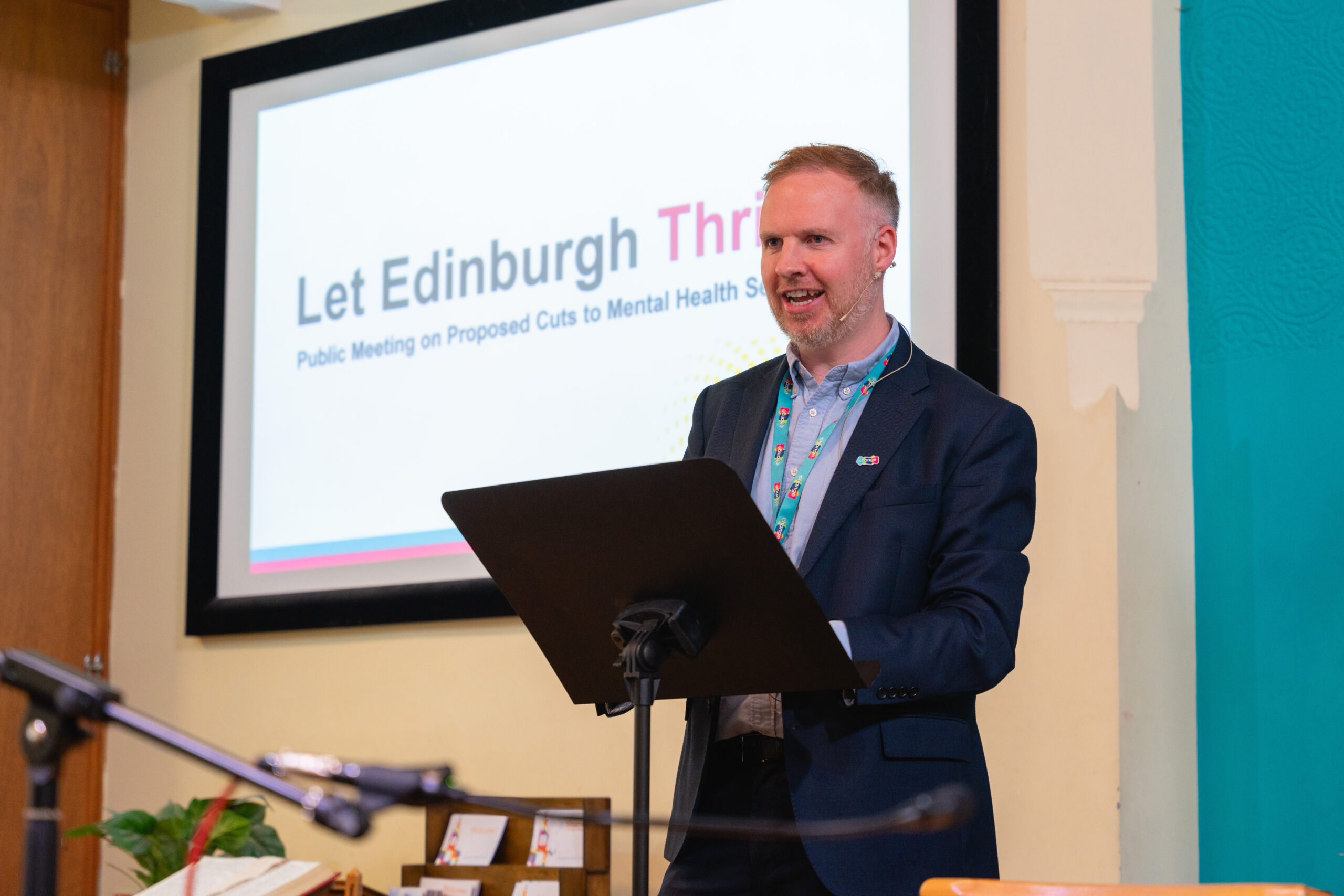Why men’s mental health needs to change in Scotland
Insights from lived experience reveal why current support structures fail many men in Scotland, highlighting cultural pressures and practical changes that can improve care.

When people talk about men’s mental health, they often begin with a pause and a heavy sigh. It’s a subject still edged with discomfort, complexity and cultural bias.
Across Scotland, three out of every four people who die by suicide are men. The highest risk sits in midlife, when identity, work and family pressures collide.
Behind those numbers are deeper cultural and structural forces that shape how men think and seek help. The people best placed to change this story are men themselves. We’ve asked men from across Change Mental Health, working in welfare, policy, frontline support, partnerships and leadership, to share what they see, hear and experience every day.
Cultural pressures shaping men’s mental health in Scotland
Cultural expectations still shape the way men think about their emotions. The belief that strength means staying stoic remains one of the deepest barriers to change.
“Traditional masculine norms and stigma, particularly around mental health are at the heart of it,” says Chris Salt, Welfare Rights Adviser in Edinburgh, “ Most of the men I’ve supported have an inability to self-identify any support needs. It often presents as internalised hatred and can lead to wider issues.”
For Jamie Grant, Policy and Public Affairs Manager, these pressures are learned early. “The lessons that were most direct were the most harmful: ‘man up’, ‘men don’t cry’, ‘get a grip’. Those phrases set the boundaries of what’s acceptable and what isn’t.”
He believes the better parts of masculinity rarely get airtime: “We talk a lot about toxic masculinity and rightly so. The better parts of being a man – compassion and care, for example – are rarely highlighted.”
That silence shows up in adulthood too. George Bellamy, Director of Operations, recalls growing up with a “very ‘keep calm and carry on’ approach”, where emotions were dealt with privately because “emotional vulnerability in public felt like a flaw.”
For Graham Caie, Advice and Support Officer, this still defines how many men live. “Society expects men to be the provider and protector and asking for help is seen as weakness. That’s a hard thing to unlearn.”
Matt Cameron, Partnership and Development Manager, sees the emotional cost of that pressure. “A lot of men quietly carry this pressure to make it work: to build something, to provide, to be okay. When things don’t go as planned, it doesn’t just hit confidence; it hits identity.”
Jamie sums it up plainly:
“If we want men to open up, we have to give them better models of what strength looks like: ones rooted in honesty, not denial.”
Why Scotland’s systems miss men?
These cultural pressures meet systems that were never designed with men in mind. Services too often step in after distress becomes crisis, instead of offering early routes to help.
“Our healthcare systems have never really been designed with men’s patterns of engagement in mind,” says George. “For women, there are regular touchpoints – reproductive health, maternity care, contraception – that build trust over time. For men, those opportunities rarely exist.”
“You can’t help people who don’t see themselves in the picture,” adds Chris. “Many men still don’t feel comfortable with support services or they feel those services aren’t made for them.”
Jamie sees the same problem at policy level. “Men’s mental health is often weaved through strategies rather than being named outright,” he says. “It’s not that policymakers ignore it; it’s that they reflect society’s discomfort with gender nuance. There’s a fear of creating division, when really, it’s about equity.”
The data confirm what these men describe. In Scotland’s most deprived areas, suicide rates are around 2.4 times higher than in the least deprived (National Records of Scotland). Unemployment, job insecurity and money stress are major drivers of poor mental health and men are more likely to use alcohol or drugs to cope (House of Commons Library).
“When community facilities, sports clubs or volunteer programmes close, the social fabric weakens,” Jamie adds. “We know isolation is a huge driver of poor mental health.”
Meeting men where they are
Across Scotland, community and peer-led spaces are showing how connection can change lives.
“Giving men the time to talk and feel listened to makes the biggest difference,” says Chris. “Peer support is powerful. Hearing from others who are experiencing the same thing can be transformative.”
That same spirit drives networks like Mind the Men in Glasgow, Men’s United in Aberdeenshire and Andy’s Man Club, where men meet weekly to talk without judgement. Online and community groups such as the Scottish Families Men’s Group and our own Change Mental Health resource centre in Stranraer reach those who might never walk into a service.
“Sharing recovery stories and creating male-to-male peer support breaks the stigma,” says Graham. “When we normalise men’s mental health early, before attitudes harden, we change the next generation.”
George points out how awareness work is beginning to reflect this tone. “The Samaritans partnership with Norwich Football Club was brilliant,” he says. “It talked about mental health in a way that felt natural, relatable, unforced.”
Matt believes showing matters more than telling. “We need to stop telling men to be vulnerable and start showing why it matters.” During his Walk to Hope, he walked 398 miles solo from Edinburgh to Ben Hope to raise awareness for suicide prevention. “Men messaged me privately saying things they’d never told anyone. Not because I asked them to, but because I showed what it looked like.”
“If we’re to truly break down the systemic barriers that hold back men from getting the help we need, the answer can’t just be to remove the cultural anchors holding men down.
“We have to replace them and reorient the debate towards accepting and acknowledging the different life experiences being a man offers.”
Jamie Grant,
Policy and Public Affairs Manager, Change Mental Health
Creating a culture that listens to men
Lasting change needs to live in everyday places: workplaces, schools and communities, where culture is formed by habit, not policy.
“Every workplace should see itself as part of the wellbeing ecosystem,” says Matt. “I’d love to see every organisation have a Men’s Mental Health Champion, someone who creates space for open conversations and shows it’s okay not to have it all together.”
George agrees it should start earlier:
“We need to embed emotional literacy into education, and help boys name emotions, understand health and see vulnerability as strength.”
Prevention, Jamie adds, isn’t a single programme but a way of living. “It’s what boys learn at ten, what young men are told at twenty and what workplaces reinforce at forty. If we don’t intervene in those environments, we’re just firefighting.”
For Graham, structural fairness is part of that solution. “Extend statutory sick pay for people with mental health challenges,” he says. “Reduce the financial fear that comes with being the provider. That time to recover would save lives.”
“If we can build environments that support connection and fairness,” Jamie adds, “we move from reacting to crisis to building wellbeing from the start.”
“Imagine if we measured success by the health of the people creating it, not just the profit they bring in,” says Matt. “The ripple effect would be massive. Support isn’t about fixing people,” points out Matt. “It’s about showing up.”
“When men feel truly listened to, they start to heal,” adds Chris. And Jamie leaves the last words:
“It’s a policy challenge to advocate or implement these changes whilst leaving the baggage of genuine misogyny behind, but it’s worth doing.”
If Scotland wants its men to thrive, the first step is to learn from them what’s needed and be ready to act upon it, because the insight, the solutions and the strength have been with them all along.





